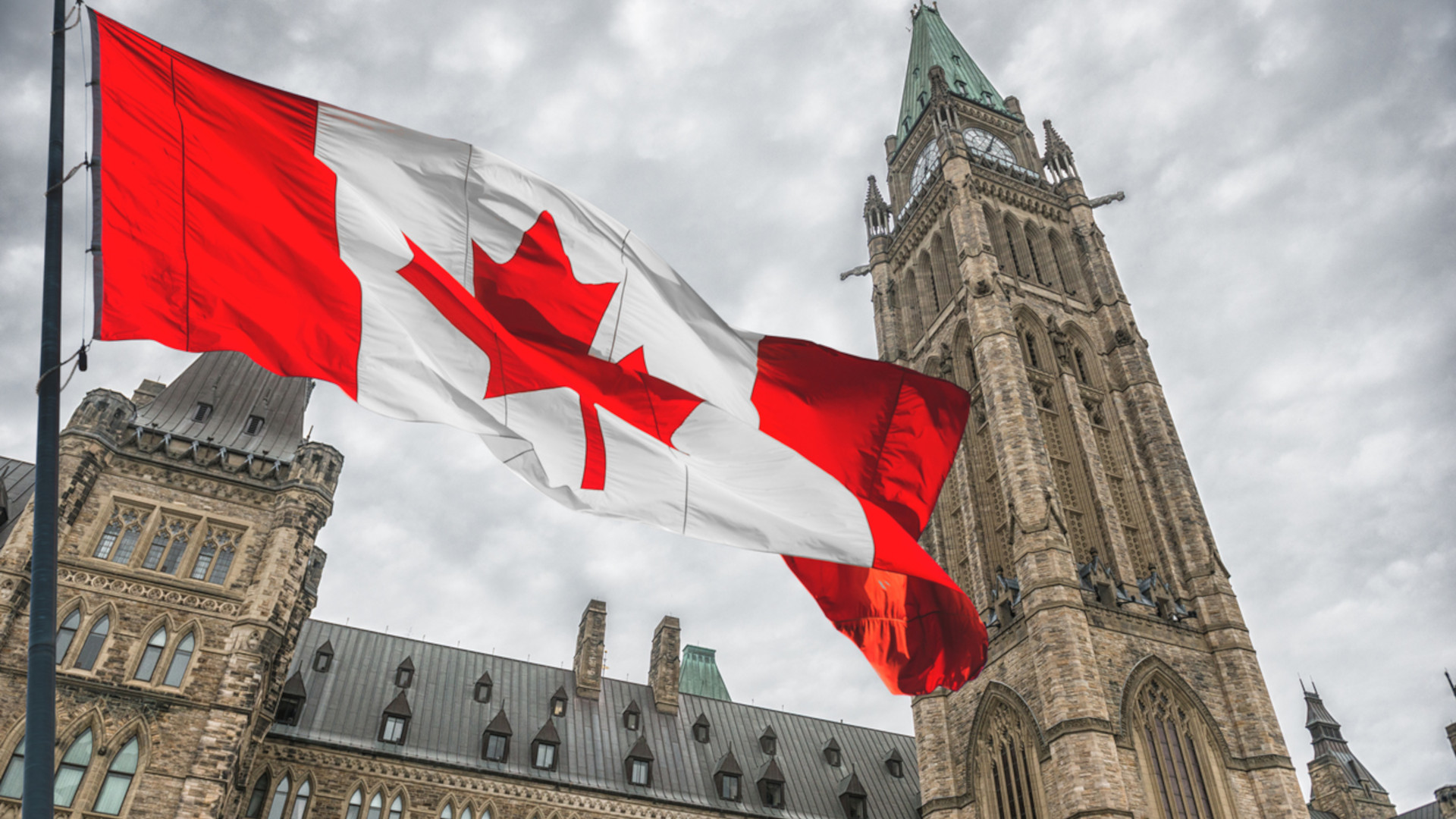
With free trade in North America dominating headlines and ongoing concern over the rise of populism across Western democracies, it’s more important than ever for policy-makers to fully understand what Canadians think about free trade and globalization.
From recent surveys, we know Canadians are positive about free trade and are generally supportive of NAFTA. This fairly benign state of affairs might surprise people who remember the great free-trade election of 1988 or the 2001 demonstrations in Quebec City against the proposed free trade area of the Americas.
Can it be that Canadians are more relaxed now about trade agreements and globalization than they were at the beginning of this century? They seem less worried, yes, but should we expect a retreat into populism and disengagement from the world like that seen in other rich countries?
Based on our analysis of Canadian opinion, that’s unlikely. But there is some risk, as several of the attributes associated with populist voting are present in Canada.
It is difficult to see trends and understand underlying attitudes using opinion surveys on trade, because surveys so often ask questions driven by the concerns of the moment. We sought to get to the heart of Canadians’ beliefs about trade and globalization through an analysis of a 2017 survey by the Mowat Centre that replicated a set of questions from another survey conducted in 2001 by the Centre for Research and Information on Canada.
Not all the survey questions from 2001 were asked again in 2017. Where exact replicas of each question did not exist, we either used closely related questions or we excluded them. It is also important to consider that while the 2001 data covers all of Canada, the 2017 data includes just Ontario and Quebec. However, regional variation in the 2001 data is sufficiently small that we don’t consider this limitation to be serious.
Regarding globalization, we focused on the following two questions that were asked in 2001 and again in 2017:
- How much do you support or oppose Canada negotiating new trade agreements with other countries, or do you have no opinion on this?
- How much do you support or oppose Canada encouraging more rapid globalization, or do you have no opinion on this? (globalization refers to the process whereby the economies of all the countries of the world are becoming more and more linked and interdependent).
When people respond to questions about trade or globalization, it is always possible that they are evaluating liberalized trade in general; the content of particular agreements; or such attributes of globalization as the Internet, the spread of disease and increased travel. The only way for a researcher to understand what the question means to respondents is to see how they answer other questions, and to see which ones tie in with answers to the initial question. The literature on public opinion suggests that peoples’ beliefs about trade policy do not float freely, changing with the latest Twitter storms; they are connected to wider values.
An analysis of the 2001 data in the Canadian Journal of Political Science (co-authored by Robert Wolfe) found that values and ideology offer a better explanation of attitudes toward trade liberalization than do economic interests, and that those material self-interest factors that influence opinion about trade are less relevant for opinion about globalization.
Our goal was to replicate that analysis to see if Canadians still think the same way. We found both similarities and differences in the 2017 data.
Figure 1 suggests that Canadians’ support for both free trade and globalization has risen and that uncertainty toward these concepts has fallen; there were fewer “uncertain” responses to trade-related questions. Perhaps this is because trade policy has gained prominence in political discourse.
In 2017 most Canadians appeared to view trade and globalization more positively than they did in 2001, but there is nevertheless a sizable gap in support between the two topics, suggesting globalization is the more controversial subject. While uncertainty toward globalization has declined, the proportion of Canadians who oppose it is increasing.
What are the specific factors are driving this polarization of attitudes? Figure 2 shows the distribution of the responses to particular questions. Our regression analysis suggests that attitudes toward trade and globalization are still shaped by values and interests. Positive attitudes toward free trade were strongly associated with a belief that Canada’s economy was performing well, feelings of attachment to Canada, support for closer ties with the United States, and perceptions that previous trade agreements have been beneficial for Canada. Our analysis of attitudes toward globalization revealed that a higher personal income and support for increased immigration were only associated with greater support for globalization. These findings suggest that educational background, age, and gender have no direct impact on attitudes toward trade or globalization.
We found that economic-based variables such as evaluations of Canada’s economic performance were more significant in shaping attitudes toward trade, while values-based perceptions of immigration and the United States had a greater effect on attitudes toward globalization. This pattern supports previous findings that economic self-interest tends to influence attitudes toward trade, but is less relevant in shaping opinions about globalization.
When comparing our findings from the two surveys, we saw that in 2001, evaluations of previous trade agreements and attitudes towards the United States were the key variables influencing attitudes toward trade and globalization. Since then, however, opinions about immigration and perceptions of Canada’s economic performance have gained influence. This suggests that Canadian attitudes toward free trade and globalization have become more complex as perceptions of immigration and Canada’s economic wellbeing gain significance.
Age, gender and education did not appear to directly influence attitudes toward trade or globalization. But closer analysis revealed that the significance of other factors differed greatly for certain Canadians. Among those with a university degree, beliefs about free trade, attitudes toward the United States and concern for the environment significantly affected attitudes toward trade and globalization. Among those without a degree, personal views on immigration and the perceived strength of the Canadian economy were significantly more influential. Perceptions of immigration and the economy were found to be significant for men but insignificant for women.
When comparing results between working-age Canadians and seniors, we found that attitudes about the United States and perceptions about the Canadian economy were significant for working-age Canadians, while evaluations of whether past agreements had benefitted Canada (Retrospective free trade in Figure 2) were more significant for older Canadians. Finally, attitudes toward immigration were found to have a significant effect on trade attitudes only for Canadians with an income below $75,000. For those with an income above $75,000, attitudes towards the U.S. and concern for the environment had a uniquely significant impact on attitudes toward globalization. These results suggest that the factors that most influence attitudes toward trade and globalization differ substantially across different groups of Canadians.
Once we knew that Canadians hold positive views about trade and globalization, we wanted to further investigate whether the increased opposition to globalization could be linked to populist sentiments. Recent analyses of North American and Western European populism have emphasized several traits common to supporters of populist politicians: Populists are more likely to be concerned about the economy and anxious about the impact of immigrants on society.
To better capture the influence of such populist sentiments, we added two questions unique to the 2017 survey: The first one measured economic pessimism by asking respondents whether or not they agreed that “when they get older, today’s young Canadians will have a better standard of living/quality of life than their parents did.” The second focused on diversity, and helped gauge attitudes toward multiculturalism by asking respondents whether they agreed that “young Canadians today are fortunate to grow up surrounded by friends from all different races and religions.”
When these two new questions were included in the analysis, those who supported diversity were far more likely to support trade and globalization, while those who were optimistic about future living standards were much more likely to view globalization positively. Views on future living standards had no significant effect on attitudes toward trade, suggesting that economic pessimism could be driving the gap in support between free trade and globalization identified in Figure 1. The survey responses suggest that economic pessimism could be increasing. When asked whether future generations of Canadians will experience an improved quality of life, only 19 percent of respondents agreed while 66 percent believed that quality of life will decline.
These two new topics were important in reducing the explanatory power of other questions and topics being examined. In particular, the topic of immigration was no longer found to influence attitudes toward free trade and globalization. This suggests that attitudes about diversity are a more direct indicator of attitudes about free trade and globalization than general support for increasing or reducing immigration levels.
Even if Canadians are generally less worried about trade and globalization than they were at the beginning of this century, as our research suggests, these attitudes remain volatile. That is evident from our analysis of opinion on NAFTA. For example, in another recent analysis we found that Canadians’ attitudes toward trade are significantly influenced by the specific trade partners or agreements mentioned in the survey questions.
A future drift toward populism in Canada cannot be ruled out. This is what is suggested by our finding that public attitudes about future living standards and multiculturalism are becoming more crucial in shaping attitudes toward free trade and globalization.
These concerns appear to be tarnishing public perceptions of globalization, which helps to explain the continued gap in support between free trade and globalization. While a full retreat to populism appears unlikely, if there was wave of economic insecurity or anti-immigrant sentiments that could spark greater public concern about remaining economically and socially engaged with the world.
Photo: Shutterstock, by StoneMonkneyswk.
Do you have something to say about the article you just read? Be part of the Policy Options discussion, and send in your own submission. Here is a link on how to do it. | Souhaitez-vous réagir à cet article ? Joignez-vous aux débats d’Options politiques et soumettez-nous votre texte en suivant ces directives.









